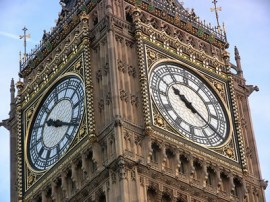
A new White Paper has been published on reform of the House of Lords, the latest in a long series of such publications since Labour won the election in 1997. Reform of the upper house was a key part of their programme for modernisation of Britain at the time, and it looks set to remain so for a long time to come. They enjoy contemplating modernisation so much, they do not actually get round to doing it.
Read the White Paper here and a statement on the subject by Justice minister Jack Straw here.
So, the plan is that each of the three main parties includes in its manifesto for the next election radical proposals for reform, so that after the next election changes can be made with broad cross-party support. One might ask whether, if there is broad cross-party support for such proposals already, it might be possible to bring in legislation sooner than that, before the next election, for example.
As it is, the government’s plan will lead to the first elections to the newly democratic upper house taking place at the same time as the general election after next, probably in around 2014 or 2015. This is a mere 17 or 18 years after Tony Blair first became prime minister. Are those the actions of a radical, reforming government?
The second reason why the latest proposals will make little difference is that they envisage election at the same time as and alongside the general elections for Westminster. While members of the new House of Lords would sit separately from the Commons, they will share the same electoral mandate. (They will be elected in thirds, each serving for three parliamentary terms, so their mandate will be weaker, but still the same.) The upper house will simply be the House of Commons lite.
A reason given for the timing of the elections, which is rather a giveaway over the objective of the whole proposal, is “to minimise disruption to the business of Parliament.” Actually, I think the business of Parliament needs to be disrupted quite a lot: it doesn’t work very well at the moment. Federal Union’s proposal, which you can read here, was to give the upper house a distinctly different mandate, but nonetheless a democratic one.
As it is, the same kind of people will end up in the new House of Lords as are present in the current one, for the same kind of reasons. I am not criticising them for the work they do – they do it very well – but I am not sure that it is the work that needs doing.
